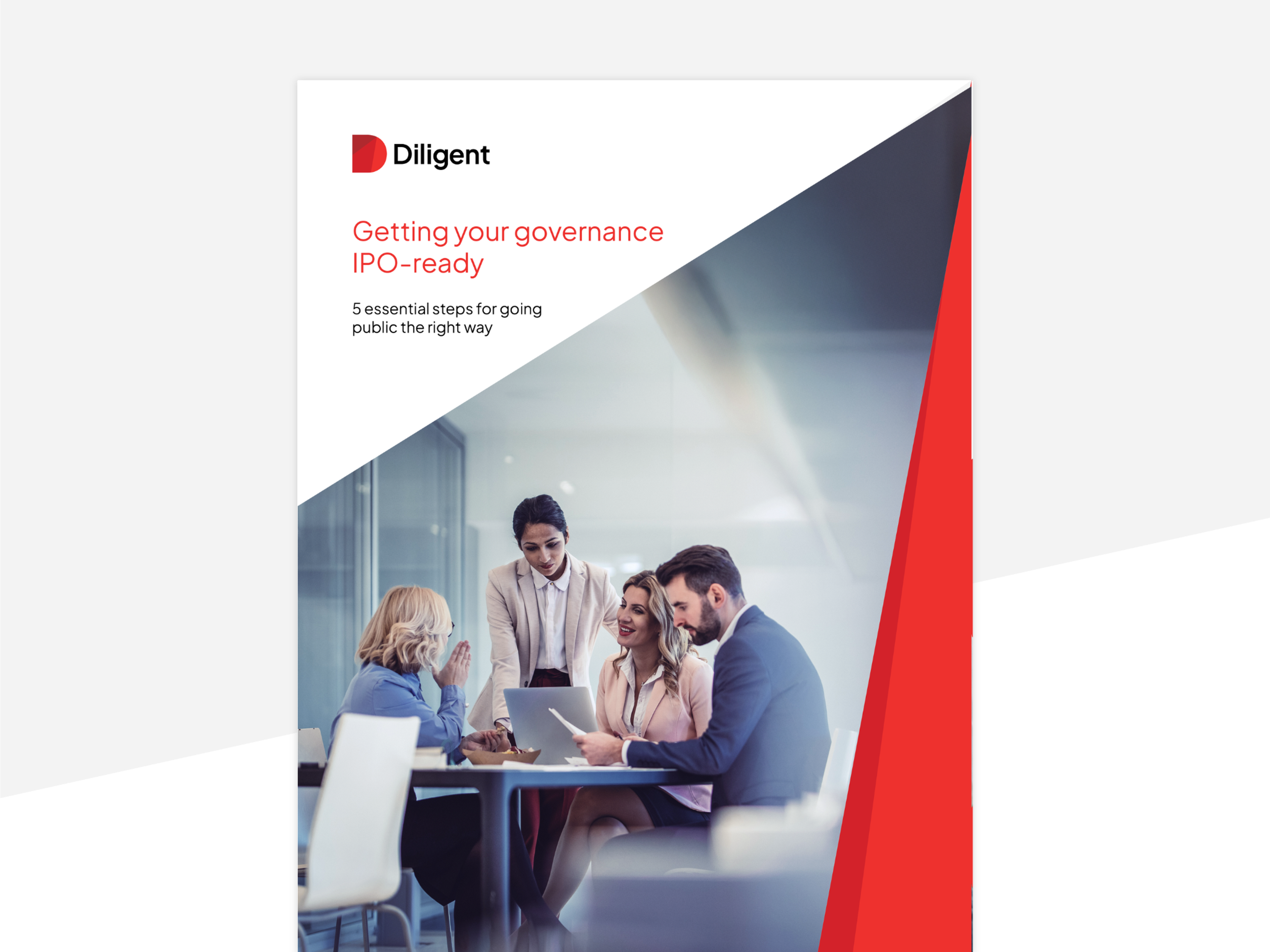The governance gap: Why public markets demand more than disclosure

— Barry Gamble, Institute of Directors commissioner and chairman of the QCA City Debate
What does it really take to thrive on the public markets today?
That question sparked a lively debate at a recent QCA City event chaired by governance expert Barry Gamble — and the answer, as he sees it, has little to do with ticking boxes. Interviewed after the debate and, drawing on years of experience across public, private, and charitable boards, Barry laid out a compelling case for rethinking how governance is approached — especially for companies eyeing an IPO or preparing for their next big move. From undervaluation risks to regulatory strain, his message was clear: effective governance isn’t a checklist. It’s a culture. And getting it right could mean the difference between long-term value creation and a missed opportunity.
The debate itself reflected this complexity. While the formal motion, "This house believes growing companies best thrive on public markets,” was ultimately carried, the discussion highlighted how much depends on governance quality, board readiness and market engagement.
One example, but by no means the only recent one he pointed to was the recent acquisition of Spectris by US Private Equity. The deal, which came at a premium of more than 80 percent over the company’s share price, underscores a troubling reality. Even well-governed, publicly listed companies are not always being properly valued by the market. For Barry, this is not just a pricing anomaly. It is a sign that boards must be more intentional about how they prepare for public life and how they communicate their value to investors.
The public market paradox
Going public is often seen as a badge of honour. It promises liquidity, access to capital and the prestige of a public listing. But as Barry points out, the reality is more complex.

This isn’t to say public markets are failing — but they are evolving. Boards must navigate a landscape shaped by market volatility, shifting investor expectations and growing regulatory complexity. Understanding these dynamics is key to positioning the business effectively and building long-term value. Even with strong governance, the market may have its own view on whether a company will thrive. Governance alone doesn’t always cut it — perception, timing and investor sentiment all play a role.
Governance as culture, not compliance
At the heart of the conversation is a shift in how governance is understood. While it is often approached as a set of formal requirements, typically documented in the annual report, Barry encourages boards to see it differently: true governance is about building trust through transparency, timely communication and strategic clarity.
This mindset shift is especially critical for companies preparing to go public. Investors are not just looking for clean disclosures. They are looking for confidence, clarity and a board that understands its role as a steward of long-term value.
The cost of getting it wrong
When governance is treated as an afterthought, the consequences can be significant. Barry shared the story of a former AIM chief executive who described the final years of public ownership as “absolutely torrid.” After facing regulatory pressure and a share price that never recovered, the company exited to private equity.
This is not a call to sideline compliance. Rather, it is a call to design governance processes that are purposeful, proportionate and aligned with the company’s strategic goals. When compliance becomes overly complex or disconnected from business realities, it can drain board energy and obscure the bigger picture. But when it is streamlined and well-integrated, it becomes a foundation for trust, resilience and long-term value.
What boards must do differently
So what does good governance look like in practice? According to Barry, it starts with:
- A robust, scalable strategy: Boards must understand and clearly communicate how the business will grow, and what could get in the way.
- The right board composition: A mix of skills, experience and constructive challenge is essential.“ You need a board that’s not dominated by one voice,” Barry emphasises.
- A culture of trust and openness: Governance should be embedded in how the board operates, not just how it reports.
And crucially, boards must prepare early: “Two to three years of preparation is ideal. It gives you time to professionalise processes, rehearse disclosures and get the board truly IPO-ready.”
For more on how boards can prepare for public life, listen to our podcast episode on navigating the IPO process.
A smarter approach to regulation
Unlike many City players, Barry is not calling for less regulation. Rather, he advocates for regulation that is better coordinated, more proportionate and more supportive of innovation.

He notes that companies often face overlapping requirements from multiple regulatory bodies, which can create complexity and cost. The goal, he suggests, should be a regulatory environment that enables companies to operate with clarity and confidence — one that works with the grain of what responsible businesses are trying to achieve.
This is where governance technology can play a critical role. With the right systems in place, boards can navigate regulatory expectations more efficiently, reduce the administrative burden and focus on what matters most: clarity, oversight and long-term value creation.
When compliance is supported by smart tools and well-structured processes, it becomes not just manageable, but a foundation for trust and resilience. As Barry puts it:
Time to rethink
The debate over public versus private markets will continue. But one thing is clear: governance must evolve. For companies eyeing an IPO, the question is not just “Are we compliant?” It is “Are we credible?” As Barry reminds us:
As the QCA City Debate concluded, there is no one-size-fits-all answer. Whether a company chooses the public route or private capital, strong governance remains a constant. The ability to build trust, communicate clearly and adapt with confidence will define its success.
For a practical guide to putting these principles into action, explore Diligent's pre-IPO checklist and our blog on transaction-ready governance. It outlines the five essential steps boards should take to prepare for public life — from building an independent board to strengthening compliance and risk oversight. Together with Barry Gamble’s perspective, it offers both the mindset and the roadmap for IPO success and an experience of public markets through which a company can truly thrive.
More to explore

Inside the IPO process
Watch this episode where Nithya Das, Chief Legal and Administrative Officer at Diligent, offers actionable insights for private companies aspiring to go public.

The pre-IPO governance checklist for high-growth companies
Use the 5 steps in this pre-IPO checklist to prepare for a smooth transition from private to public.

The IPO roadshow: A step-by-step guide to navigating yours with confidence
Discover the essentials of an IPO roadshow, from preparation to post-event follow-up, including tips and best practices for CoSecs and GCs.